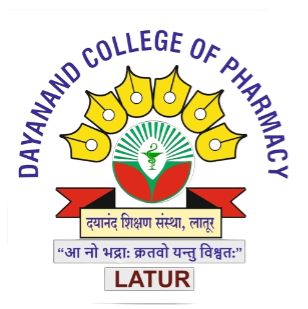INTERNAL QUALITY ASSURANCE CELL (IQAC)
As per the NAAC guidelines, the Internal Quality Assurance Cell (IQAC) was established on 25 September 2017 to fulfill the vision and mission of the college and overall development of students. The formation of IQAC will focus in institutional functioning towards quality enhancement and facilitate internalizations of the quality culture. IQAC will help in decision making and institutionalize many good practices.
Introduction
In pursuance of the National Action Plan of the National Assessment and Accreditation Council (NAAC), Bangalore, for performance evaluation, assessment and accreditation and quality up-gradation of institutions of higher education, the NAAC proposes that every accredited institution establish an Internal Quality Assurance Cell (IQAC) as a post-accreditation quality sustenance measure. Since quality enhancement is a continuous process, the IQAC will become a part of an institution’s system and work towards realizing the goals of quality enhancement and sustenance. The prime task of the IQAC is to develop a system for conscious, consistent and catalytic improvement in the performance of institutions. The IQAC will make a significant and meaningful contribution in the post-accreditation phase of institutions. During the post- accreditation period, the IQAC will channelize the efforts and measures of an institution towards academic excellence.
As per the guidelines, Role of IQAC is:
- IQAC is meant for planning, guiding and monitoring Quality Assurance (QA) and Quality Enhancement (QE) activities of the HEIs (Higher Education Institutions).
- IQAC may channelize and systematize the efforts and measures of an institution towards academic
Goals:
- To develop a quality system for conscious, consistent and catalytic programmed action to improve the academic and administrative performance of the Dayanand Education Society’s Dayanand College of Pharmacy,
- To promote measures for institutional functioning towards quality enhancement through internalization of quality culture and institutionalization of best
As highlighted in the guidelines, IQAC shall evolve mechanisms and procedures for:
- Ensuring timely, efficient and progressive performance of academic, administrative and financial
- The relevance and quality of academic and research
- Equitable access to and affordability of academic programmes for various sections of
- Optimization and integration of modern methods of teaching and
- The credibility of evaluation
- Ensuring the adequacy, maintenance and functioning of the support structure and
IQAC shall have the following functions:
- The institution has active Internal Quality Assurance Cell (IQAC) to frame the policy for the academic and administrative growth of the institution
- IQAC monitors the proper implementation and analysis of overall academic and administrative performances of the college
- Development and application of quality benchmarks/parameters for the various academic and administrative activities of the
- Facilitating the creation of a learner-centric environment favorable for quality education and faculty maturation to adopt the required knowledge and technology for participatory teaching and learning
- Dissemination of information on the various quality parameters of higher
- Organization of inter and intra institutional workshops, seminars on quality related themes and promotion of quality
- Documentation of the various programmes /activities of the Institute, leading to quality improvement.
- IQAC ensures maximum utilization of infrastructural facilities and the available ICT
- Acting as a nodal agency of the Institute for coordinating quality-related activities, including adoption and dissemination of best
- Development and maintenance of institutional database through Management information system for the purpose of maintaining /enhancing the institutional quality.
- Development of Quality Culture in the
- As per the suggestion of IQAC, a feedback analysis committee is formed to review the online and offline feedback received from the
- IQAC reviews the feedback received from the parent- teacher meetings
Benefits:
- Ensure heightened level of clarity and focus in institutional functioning towards quality
- Ensure internalization of the quality
- Ensure enhancement and coordination among various activities of the institution and institutionalize all good
- Provide a sound basis for decision-making to improve institutional
- Act as a dynamic system for quality changes in
- Build an organized methodology of documentation and internal


